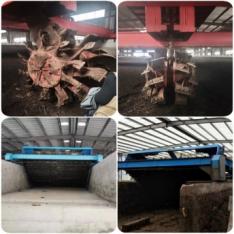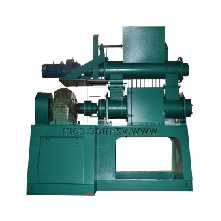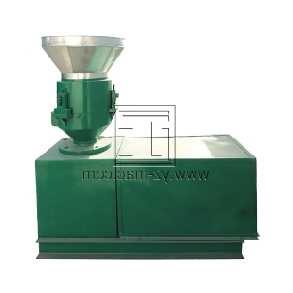Commercial composting equipment
Commercial composting equipment refers to specialized machinery and tools designed for large-scale composting operations in commercial or industrial settings. This equipment enables efficient processing of organic waste materials and the production of high-quality compost.
Windrow Turners:
Windrow turners are large machines designed to turn and mix composting materials in long, narrow piles called windrows. These machines accelerate the composting process by ensuring proper aeration, moisture distribution, and microbial activity throughout the windrows. Windrow turners help maintain optimal conditions for decomposition, resulting in faster and more efficient composting.
Compost Tumblers:
Compost tumblers are rotating drums or vessels that facilitate the mixing and aeration of composting materials. They provide a controlled environment for composting, allowing for efficient decomposition and faster compost production. Compost tumblers are often used in smaller-scale commercial composting operations or for specialized applications.
In-vessel Composting Systems:
In-vessel composting systems involve the use of enclosed containers or vessels to compost organic materials. These systems provide precise control over temperature, moisture, and aeration, creating ideal conditions for microbial activity and decomposition. In-vessel composting systems are suitable for large-scale commercial composting operations and can handle a wide range of organic waste materials.
Compost Screening Equipment:
Compost screening equipment is used to separate the finished compost from larger particles, such as twigs or stones, to produce a uniform and refined product. Screens, trommels, or vibrating screens are commonly used for this purpose. Screening equipment ensures the quality and consistency of the final compost product.
Compost Shredders:
Compost shredders are machines that shred and break down large organic waste materials into smaller pieces. These machines enhance the surface area of the composting materials, promoting faster decomposition and microbial activity. Compost shredders are particularly useful for bulky organic waste, such as tree branches or crop residues.
Temperature and Moisture Monitoring Systems:
Temperature and moisture monitoring systems help track and control critical parameters during the composting process. These systems use sensors and probes to monitor temperature and moisture levels within compost piles or containers. By ensuring optimal conditions, operators can adjust and manage the composting process for optimal performance and compost quality.
Compost Bagging and Packaging Machines:
Compost bagging and packaging machines automate the packaging and sealing of finished compost into bags or containers. These machines improve the efficiency of the packaging process, allowing for faster and more convenient distribution of the compost product. Bagging and packaging machines are essential for commercial composting operations that supply compost to retail markets or end-users.
Compost Moisture Meters:
Compost moisture meters are handheld devices used to measure the moisture content of composting materials. These meters help ensure that the moisture levels within the compost piles or containers are within the optimal range for efficient decomposition. Monitoring and maintaining proper moisture levels are critical for successful composting.
Commercial composting equipment offers several benefits, including increased processing capacity, improved efficiency, accelerated composting process, enhanced compost quality, waste diversion from landfills, and support for sustainable waste management practices. Choosing the appropriate commercial composting equipment based on the specific needs and scale of the operation is crucial for successful and productive composting.








